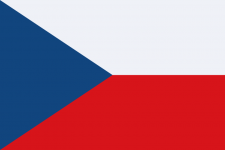
This report from IOM Czechia, published in June, focuses on older refugees - a group identified by previous research as being among the most vulnerable of those displaced by the ongoing war in Ukraine.
The report presents a mixed-methods study that combines elements of quantitative and qualitative research. Data collection took place from February to March 2024, and 403 surveys were collected. Only Ukrainian refugees aged 60 and above were surveyed. Research questions were developed based on previous findings and aimed at a more comprehensive understanding of the following issues:
- What is the household composition/social background of older refugees in Czechia? Who do they seek assistance from?
- What challenges do older refugees face in relation to their health and healthcare?
- Are older refugees in a financially secure position?
- What is the current state of economic and social integration for those aged 60 - 64, and what challenges do they face in this regard?
Key findings
Overall, the study found that the financial situation of older Ukrainian refugees in Czechia is generally unfavourable, despite some respondents being more financially stable. More than half (54%) reported that their household could not cover an unexpected expense of CZK 2 500. The Ukrainian pension, which many rely on, is significantly lower than the Czech pension, and some respondents do not have access to it at all. Most of those surveyed combine multiple income sources, including support from Czech authorities (74%), social benefits from Ukraine (55%), and family support (43%).
Reliance on Family Support
Many older refugees depend on relatives, often their children, and were previously financially independent. This dependency can lead to psychological stress and a sense of lost social identity. Financial and psychological strain on both refugees and their families may be unsustainable, necessitating alternative support solutions, according to the authors of the study.
Integration and Employment
Success in integration is often measured by economic self-sufficiency, which is challenging for older individuals. However, older refugees express a strong desire to remain socially involved, such as through community activities or looking after grandchildren. Despite their retirement age, many would like to work to integrate into society, stay active, and achieve financial independence. Currently, only 12% are employed. The primary barriers to employment are language skills (80%) and health issues (59%).
Health and Language Barriers
A significant number of respondents (77%) live with someone who has specific health needs. The language barrier is the main obstacle to accessing healthcare, cited by 71% of respondents. The difference between the Czech and Ukrainian healthcare systems further complicates their ability to navigate medical services. Consequently, over a quarter (27%) of respondents have not registered with a general practitioner.
Risks and Needed Support
Older refugees in precarious financial situations are more vulnerable to fraud and exploitation. To mitigate these risks and prevent social exclusion, financial support through state grants and social assistance, including interpretation services, is essential. Community-oriented socio-cultural activities are also highly valued and can greatly enhance the well-being of these refugees.
Details
- Authors
- Oleksandra Kuzmenko and Andrea Svobodová
- Geographic area
- Czech Republic
- Contributor type
- International organisation
- Original source
- Posted by
